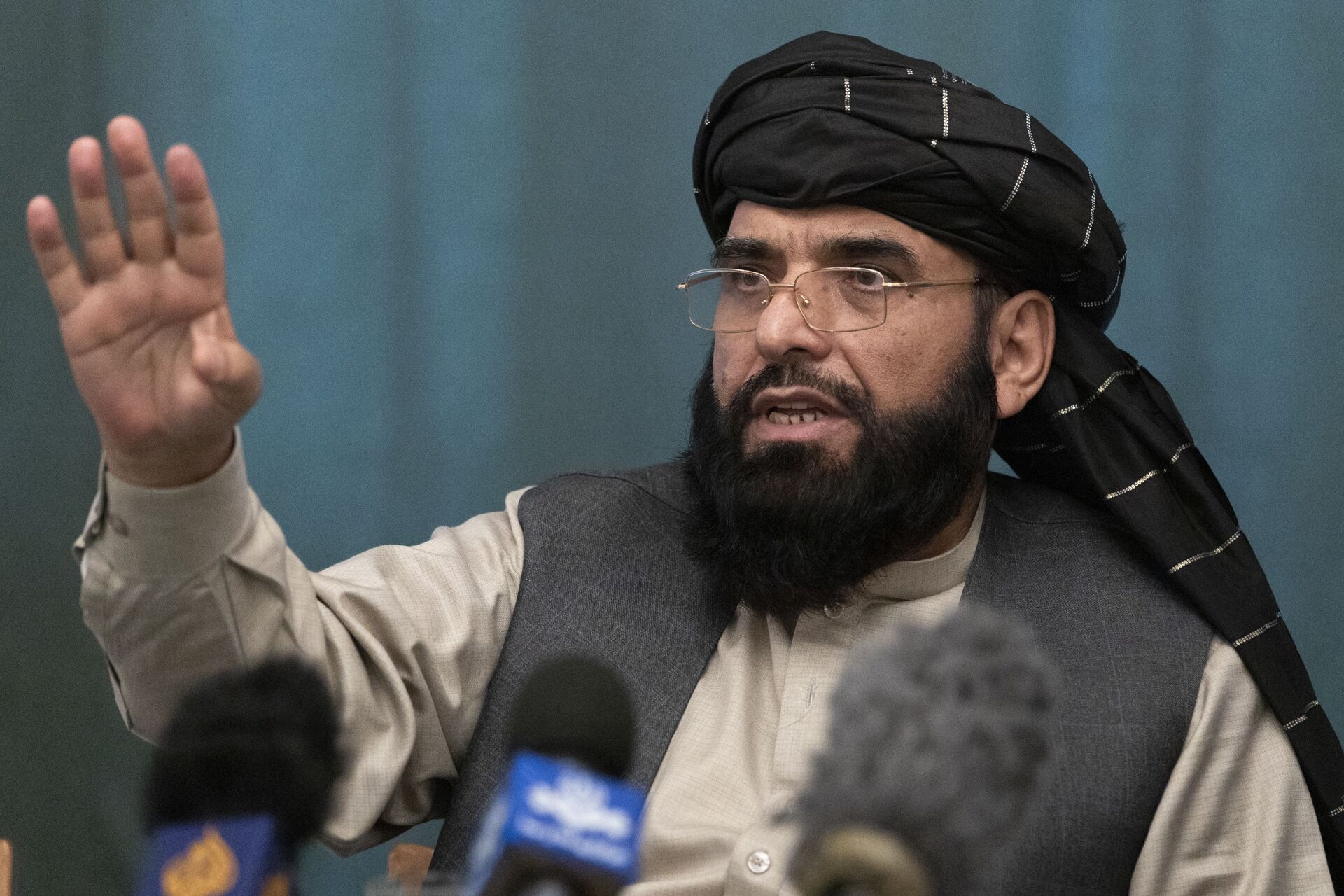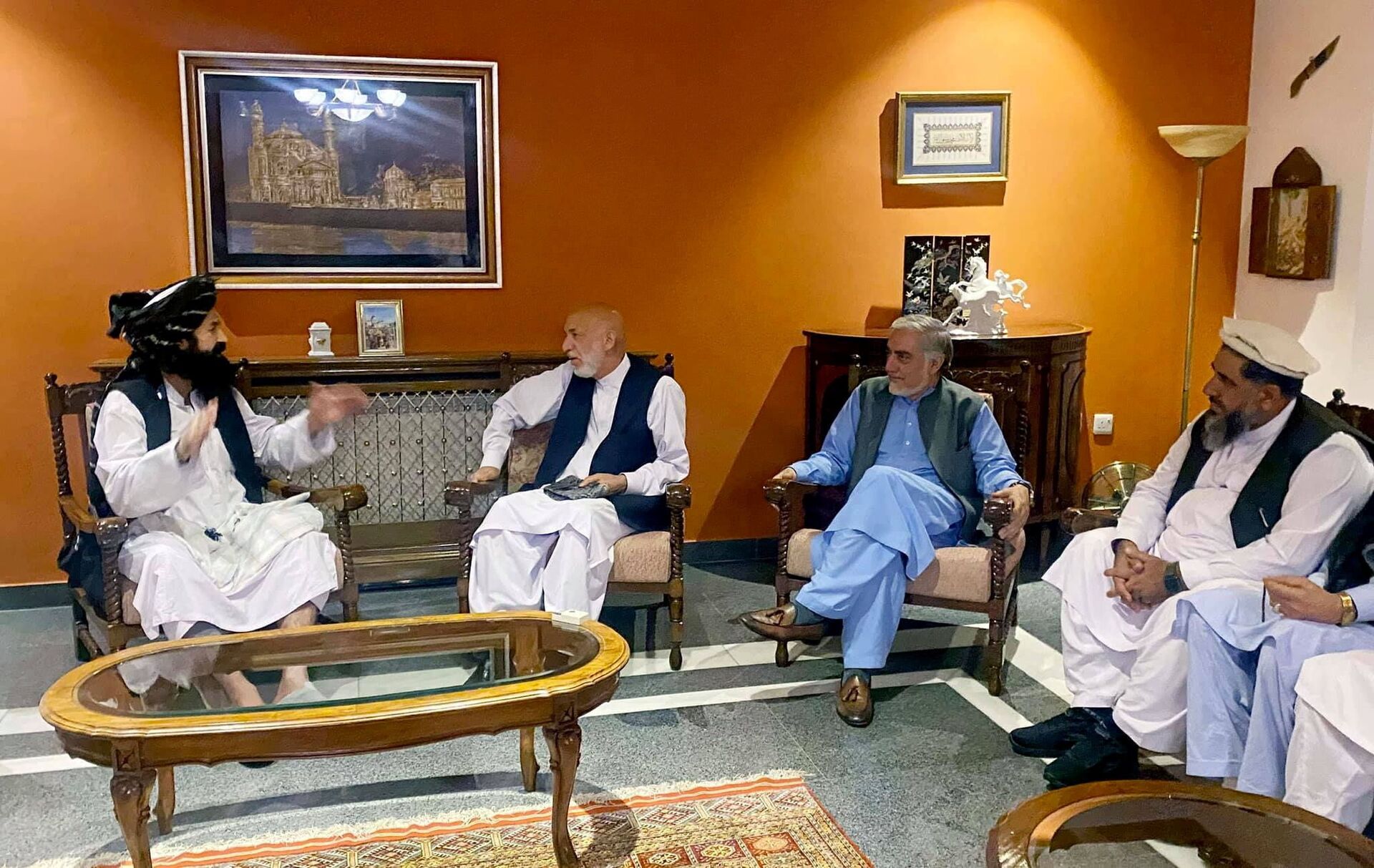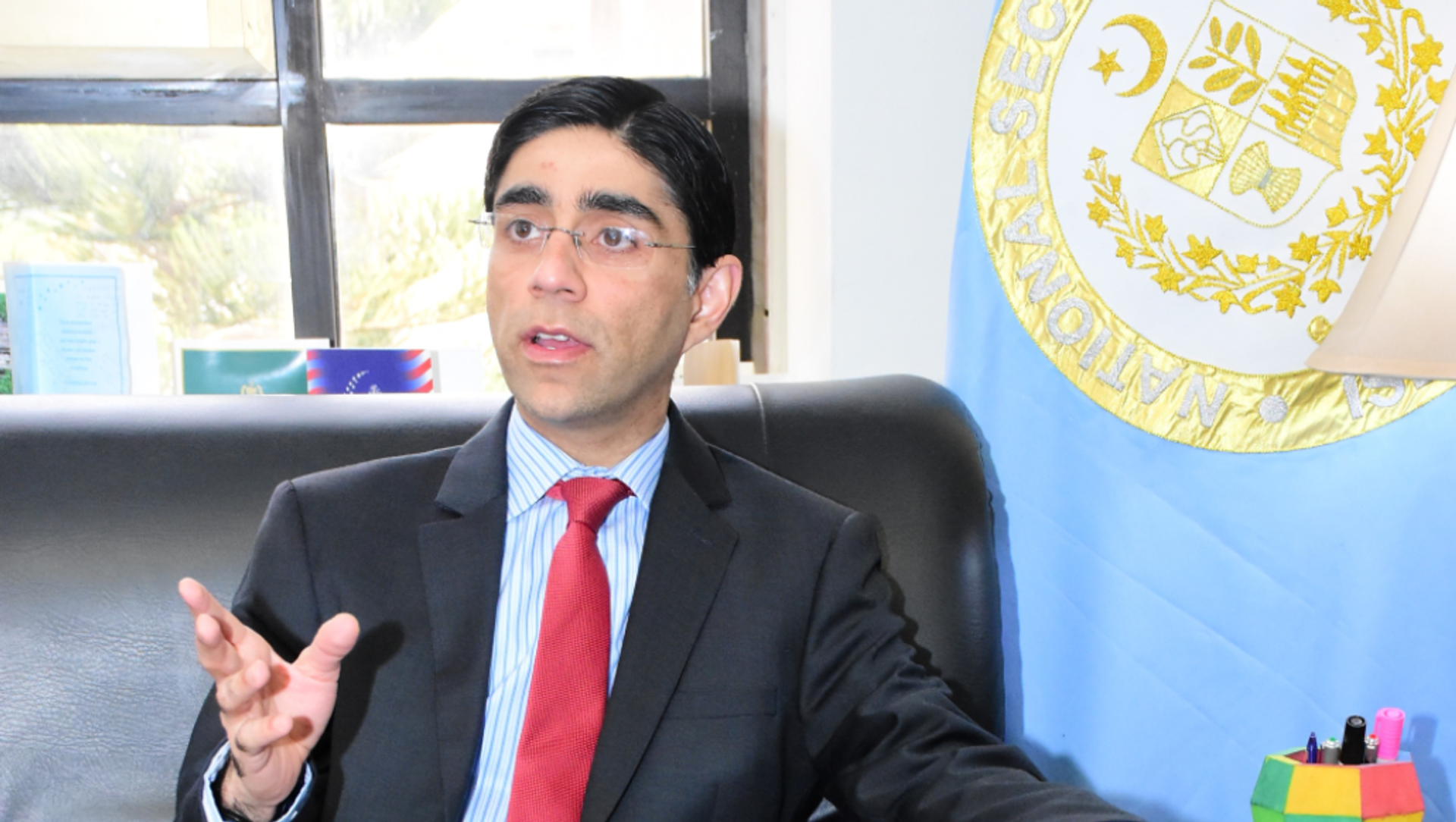Pakistan’s NatSec Chief Urges US to ‘Move Forward as Partners’ With Taliban Instead of Disengaging
Subscribe
Presiding over a country ruined by decades of war and treatment as an international pariah, the Afghan Taliban* have shown an increased interest in winning international recognition and investment, in contrast to their rule 20 years ago. However, most nations seem to be taking a “wait and see” approach to their promises.
Pakistan’s national security adviser has urged the US not to pull away from Afghanistan diplomatically and economically as its final troops withdraw, saying Western nations have much more weight than Islamabad to ensure that a stable government forms under Taliban rule.
“Now that the Taliban has the whole country, they don’t really need Islamabad as much anymore,” Pakistani national security adviser Moeed Yusuf told the Washington Post on Wednesday.
“Assistance and recognition is the leverage. Who has that? It’s the Western countries that have much more leverage in Afghanistan than Pakistan.”
After the US-backed Afghan government quickly collapsed before a Taliban offensive earlier this month, the Islamist militant group gave wide assurances that their new government would not allow terrorist groups to operate in the country and that they would respect the rights of women and minorities, within the scope of their understanding of Sharia, which in the past has been both strict and brutal.
The promises, which could go a long way toward stabilizing the country after more than four decades of war, are highly sought by both the US and Afghanistan’s neighbors, which have coordinated among themselves a united front of non-interference, but made clear that recognition, investment and economic integration can only come about under a stable Afghan government.

FILE - In this March 19, 2021 file photo, Suhail Shaheen, Afghan Taliban spokesman and a member of the negotiation team gestures while speaking during a joint news conference in Moscow, Russia. In an interview with The Associated Press Thursday, July 22, 2021
© AP Photo / Alexander Zemlianichenko
“We need to work out how to move forward as partners, because neither side can do without the other in terms of stability in the region,” Yusuf urged. “If a security vacuum is left in Afghanistan by abandoning it, you will see that these terrorist organizations take root again. Let’s not kid ourselves.”
The Afghan Taliban has promised Islamabad that it won’t allow Tehrik-i-Taliban Pakistan (TPP), a loosely aligned group of terrorist cells on Pakistan’s side of the border, to operate on the Afghan side any longer. Likewise, they have promised the US not to allow al-Qaeda to use their ground, and promised China not to allow the East Turkestan Islamic Movement (ETIM) shelter in Afghanistan, either.
Massive infrastructure investment is sure to flow from Afghanistan’s neighbors via projects like the Belt and Road Initiative and the China-Pakistan Economic Corridor, or the wider regional integration if the country is invited to join the Shanghai Cooperation Organization.
If their method is honey, the method used by the US and UK to urge creating an inclusive and stable Afghan government has so far been vinegar. Washington has frozen the Afghan central bank’s $9.4 billion in assets and up to 80% of the country’s budget has dried up in the last month, as US direct financial assistance to access to foreign credit and investment by international agencies are withheld.
“As a practical matter it advances our interests” to engage with the Taliban, US Secretary of State Antony Blinken told reporters earlier this week. He added that an Afghan government that keeps its commitments to renouncing terrorism, protecting human rights, and allowing people to leave is “a government we can work with.”
If not, the US will use “every appropriate tool at our disposal” to make Afghanistan “a pariah,” he added.
Last week, Chinese Foreign Minister Wang Yi urged his British counterpart not to be so aggressive in trying to influence the Taliban’s policies. On Thursday, Yusuf echoed those words when speaking with a group of British political leaders.
According to the Associated Press of Pakistan, Yusuf urged them not to “repeat the mistakes of the 1990s, when Afghanistan and Pakistan were abandoned, and Pakistan was sanctioned after having been a frontline ally for a decade,” adding that “the need of the hour was for the international community to remain constructively engaged and use its leverage in a coordinated manner to influence Taliban’s policy.”

Former Afghan President Hamid Karzai, accompanied by the old government's main peace envoy, Abdullah Abdullah, sits for talks with members of the Taliban delegation in this undated handout uploaded August 19, 2021.
On Friday, Al Jazeera reported, citing Taliban inside sources, that the group was forming an “inclusive caretaker government” that would have tribal leaders from all of the nation’s different ethnicities.
According to the report, women will be allowed to work in various government bodies “as they did in the previous government,” although under that government, which lasted from 1996 to 2001, women all but disappeared from public life. Still, this time around they have pledged to allow women and girls to attend school, which wasn’t allowed before.
The report didn’t give a timeframe for how long the caretaker government would be in place, only saying it would last long enough to decide on a permanent government layout.
The US withdrawal, scheduled to be completed by August 31, spells the final end to almost 20 years of occupation and a war that has killed perhaps as many as 500,000 Afghans, via direct and indirect means, and sent millions more seeking refuge far from their homes. The US invasion came just weeks after al-Qaeda carried out September 11, 2001, terrorist attacks in New York and Virginia from its bases in Afghanistan, although the hijackers themselves weren’t Afghans.
The Taliban, which had sheltered al-Qaeda, was quickly thrown out of power, but soon launched an insurgency in the countryside that the US and its allies couldn’t uproot. By February 2020, the US had signed a ceasefire with the Taliban and agreed to withdraw all its troops by May 2021, although that was later extended to August 31 by Washington.
*Taliban is a terrorist organisation outlawed in Russia and many other states.




